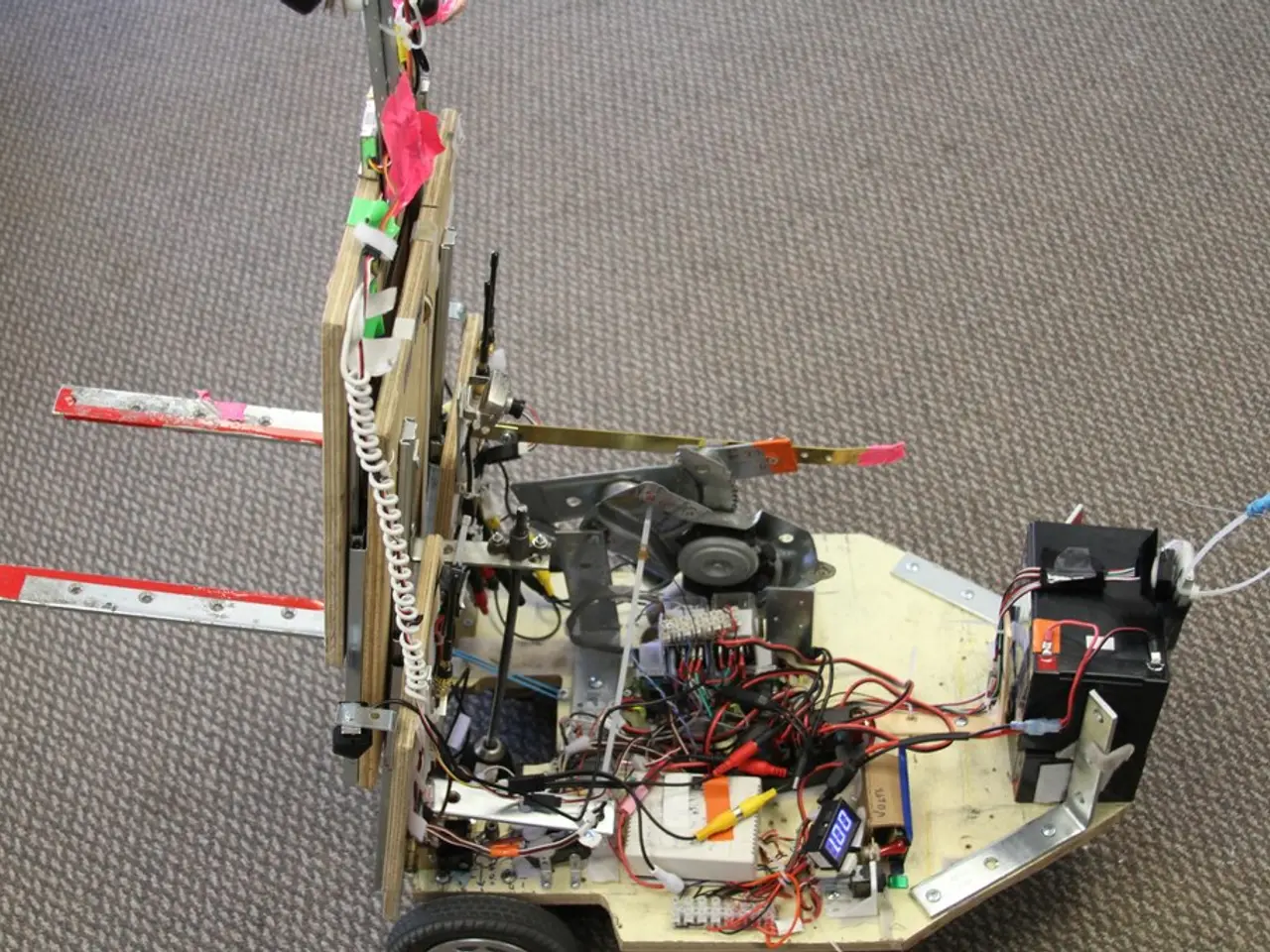Tech Gadgets' Impact on Life Evolution: A Retrospective Look at Historical Advancements
From the dawn of human history, technological advancements have played a pivotal role in shaping our civilization. This article takes a journey through the significant eras that have left indelible marks on our society.
In the prehistoric era, the invention of stone tools and the control of fire marked the beginning of a new chapter for early humans. These simple technologies enabled hunts, cooking, and adaptation to diverse environments, paving the way for societal growth and physical evolution.
The ancient civilizations, flourishing around fertile river valleys, witnessed the development of writing systems and organized societies. This laid the foundation for complex civilizations, facilitating record-keeping, administration, and cultural growth.
The Industrial Revolution, which began in the 18th century, introduced mechanized agriculture, manufacturing, mining, and transport, alongside the factory system. These innovations accelerated urbanization, improved living standards, and reshaped social structures.
The Second Industrial Revolution, in the late 19th to early 20th century, was marked by electrical engineering, mass production, and new transportation modes like automobiles and airplanes. Communication technologies such as the telegraph, telephone, radio, and television vastly improved information exchange and social connectivity.
The 20th Century Technological Boom brought about physics breakthroughs, including nuclear fission, leading to nuclear power and weapons. Computer technology evolved from analog machines and vacuum tubes to the transistor in 1947, enabling modern digital computing. Information technology advanced with optical fiber and the Internet, inaugurating the Information Age. Space exploration began with Sputnik (1957) and manned moon missions in the 1960s. Medical technology progressed with imaging modalities, life-support devices, and molecular biology tools.
Late 20th to Early 21st Century Communications and Computing saw the emergence of mobile phone technology, the World Wide Web, personal computers, and AI-powered chatbots, self-driving cars, and smart algorithms. Robotic vacuum cleaners, streaming services, smart thermostats, and voice assistants have transformed domestic life and industries.
Smart cities, powered by the Internet of Things, are being developed to manage energy efficiency, reduce traffic congestion, and improve urban living. Video games have become more immersive with the introduction of virtual reality and augmented reality. E-books and online learning platforms have made education more accessible.
However, with these advancements come ethical concerns, such as privacy, security, and the human impact of automation, which will be major challenges in the coming years. Quantum computing, neural interfaces, and biotechnology are promising advancements for future tech gadgets.
In conclusion, technology has driven exponential growth in human capability, interconnectedness, and cultural complexity, continuously reshaping civilization’s trajectory. From the earliest stone tools to the smartphones of today, each technological era has left an indelible mark on our society, transforming the way we live, work, and communicate.
- As we move forward, trends in tech gadgets continue to revolutionize domestic life and industries, with robotic vacuum cleaners, streaming services, smart thermostats, and voice assistants offering increased convenience.
- In the realm of entertainment, games have become more immersive through the introduction of virtual reality and augmented reality, offering new dimensions for interactive experiences.
- Science and data-and-cloud-computing have expanded our understanding of the world, driving advancements in artificial intelligence, enabling AI-powered chatbots, self-driving cars, and smart algorithms to transform daily life.
- Education and self-development are being reshaped by the emergence of online learning platforms and e-books, making knowledge more accessible to a global audience.
- Cybersecurity is becoming increasingly crucial as we rely more on technology, with ethical concerns surrounding privacy, security and the human impact of automation, creating major challenges for the coming years.
- The future holds promise with advancements in quantum computing, neural interfaces, and biotechnology, set to introduce the next generation of tech gadgets.




